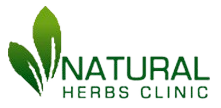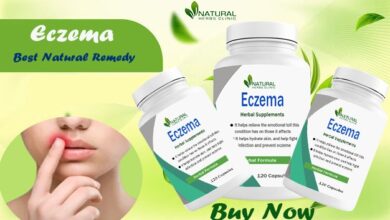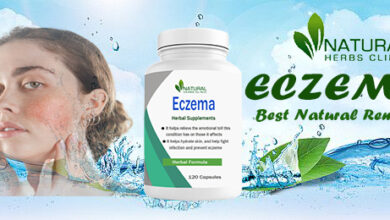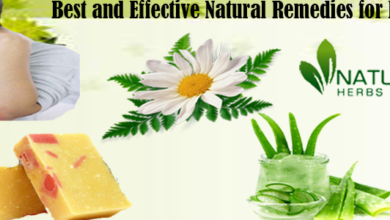Eczema Herbal Supplements and Remedies, Supportive Option to Treat It
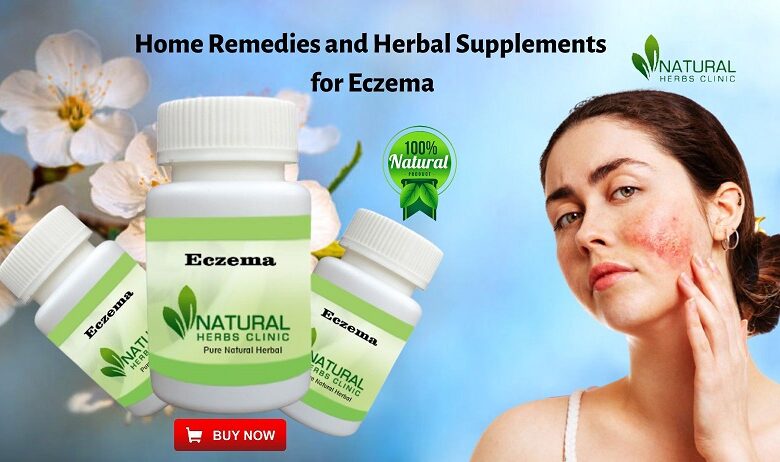
Utilization of Herbal Supplements for Eczema can be very helpful to restore healthy skin to normal without any side effects.
What is Eczema?
Eczema is a collection of ailments that cause irritation or inflammation of the skin. Atopic dermatitis or atopic eczema is the most prevalent kind. The term “atopic” describes a person’s propensity to develop allergy diseases like asthma and hay fever.
In the United States, 3% of adults and children and 10% to 20% of neonates are affected by eczema. Most kids outgrow it by the time they turn 10 years old. Some people suffer symptoms perpetually, on and off.
Although there is no known treatment, the majority of people may manage their symptoms by receiving care and avoiding triggers. You cannot transmit eczema to someone else because it is not contagious.
Symptoms of Eczema
Everybody has a varied eczema appearance. Furthermore, your flare-ups won’t always occur in the same location.
Eczema is usually always itchy, regardless of the area of your skin that is affected. Sometimes the rash appears before the itching. Your skin could also:
Red
Dry
Cracked
Leathery
When to visit the doctor
Call your physician if:
Infection symptoms like fever, redness, warmth, pus, or blisters are apparent.
Your eczema abruptly alters or worsens
Treatments are ineffective.
Eczema Types
Eczema encompasses ailments like:
Dermatitis atopy. When someone mentions “eczema,” this is typically what they mean. More than 7 percent of American adults are affected by this kind, which is the most prevalent. It frequently begins in childhood and is connected to other allergy diseases including asthma and hay fever.
Dermatitis from contact. This happens to almost everyone at some point in their lives. When something that creates a rash comes into contact with your skin, it occurs. An allergic reaction or irritated skin can result from the trigger. Each person has a different set of triggers, which differ between the two forms of contact dermatitis:
The type that is more typical and associated with those who have atopic dermatitis is irritant dermatitis. Skin care items, soaps and detergents, nickel-plated jewelry, and industrial pollutants like cement and solvents can all act as triggers.
When you come into contact with an allergen, your allergic dermatitis will flare up. Poison ivy, nickel and other metals, scents and cosmetics including fragrances, rubber, latex, and the preservative thimerosal are some examples of common allergies. Some folks need sunlight to elicit a response.
Eczema with dyshydrosis This type of eczema is less frequent but more difficult to treat. On the palms of the hands, the bottoms of the feet, and the sides of the fingers, it might produce outbreaks of tiny blisters. Sweating or irritants like metals might cause it.
Neurodermatitis. This kind of eczema typically only results in one or two extremely irritating patches, which are frequently found on the arm, leg, or nape of the neck. Having very dry skin or another type of eczema, such as atopic or contact dermatitis, are risk factors. However, there is a connection between it and a few mental health conditions, such as anxiety disorder and obsessive-compulsive disorder (OCD). It is more likely to affect women between the ages of 30 and 50 than other persons.
Embellished eczema. Eczema in the form of a coin frequently develops following a skin injury, such as a burn or bug attack. If you or a member of your family suffers from atopic dermatitis, allergies, or asthma, you are more prone to develop nummular eczema.
dermatitis seborrheic. This occurs in body regions with a high density of oil glands. Dandruff is the term for it when it appears on your scalp. Seborrheic dermatitis most likely develops as a severe reaction to an abundance of the common bacterium Malassezia yeast on the skin. It’s connected to a number of other diseases as well as other skin ailments like rosacea, acne, and psoriasis.
Dermatitis of stasis. People with inadequate blood flow, typically in the lower legs, experience this type of condition. These plaques are not connected to defective genes like certain other kinds of eczema. The risk is also increased by several lifestyle choices, such as being overweight and not exercising enough.
Causes and Risk Factors for Eczema
Experts are unsure about the precise etiology of eczema. The following factors could increase the likelihood:
an immunological response to a bothersome substance
issues with the barrier of your skin that allow bacteria and moisture to escape
a history of asthma or other allergies in the family
Diagnosis of Eczema
No test is able to detect eczema. Most likely, your doctor will make the diagnosis after examining your skin and asking you a few questions.
Your doctor may request certain allergy testing in order to seek for irritants or triggers because many people who have eczema also have allergies. Allergy tests are particularly likely to be performed on children with eczema.
Ask your doctor these questions if they determine that you have eczema:
How can I add moisture to my skin the best? Do you need to write me a prescription for something, or may I use over-the-counter remedies?
Do I need to purchase specific laundry detergent, lotions, or soaps? Do sensitive skin or fragrance-free products help?
Are there any foods I should stay away from to prevent flare-ups?
Are there any materials I should stay away from wearing? What about materials I ought to don more of?
Do pets exacerbate symptoms?
Can I exercise if sweating makes my condition worse?
What happens if my symptoms don’t go away or if I scratch my skin and get an infection?
Do flare-ups result from stress?
Are extended stretches without symptoms typical?
Are there any treatments I can use on my skin to lessen the likelihood of another flare-up?
Is Eczema Spreadable?
No. Eczema cannot be contracted from another person or spread to others. Eczema does not indicate that your skin is sick or that it is contagious. Due to the fact that eczema frequently runs in families, some individuals may believe it to be contagious. However, a number of variables, such as your immune system, your genes, the environment, and other things that result in a defective skin barrier, can lead to eczema.
Still, scratching or cracking caused by eczema can result in skin infections. The defenses of your skin against bacteria and other organisms may be compromised as a result.
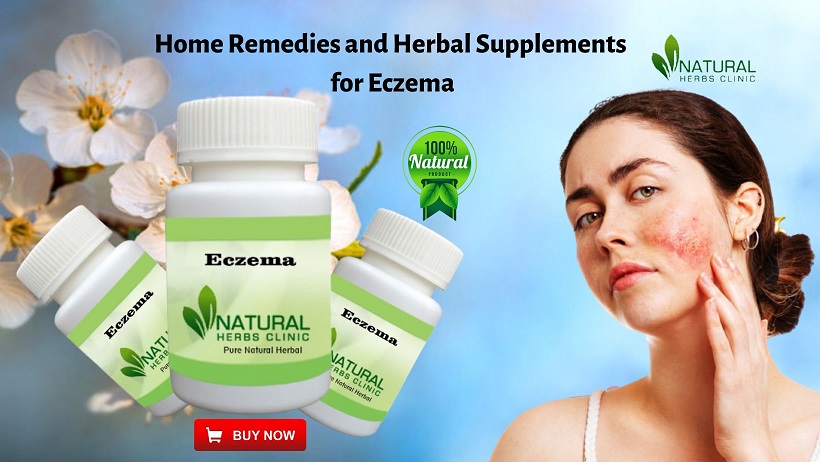
Home Remedies and Herbal Supplements for Eczema
There are lots of home remedies and Herbal Supplements for Eczema that are very helpful to treat the skin condition without any side effects.
Coconut Oil
Coconut oil is widely known for its antibacterial characteristics, which make it a valuable component of herbal eczema treatments. Coconut oil hydrates the skin while also reducing bacterial growth by as much as 95% when applied topically. Most people with severe eczema have staph germs on their skin, which can be diminished with a single coconut oil application. It is possible to combine a tiny bit of the oil with your preferred moisturizer before applying it to the skin if it seems too oily or heavy. Herbal Remedies for Eczema and numerous other skin and health problems often use coconut oil.
Sunflower Seed Oil
Sunflower seed oil helps maintain the overall integrity of the skin’s outer layer and enhances hydration. Sunflower seed oil makes the skin’s natural outer layer more effective in retaining moisture, which lessens the signs and symptoms of eczema. Directly apply the oil to the skin, then rub it in until the outer epidermal layer has been penetrated. A very helpful component used in Natural Remedies for Eczema and many other skin conditions is sunflower seed oil. It has no negative effects and functions well.
Vitamin D
The Vitamin D Council claims a direct connection exists between eczema and other skin disorders and low vitamin D levels. Ask your doctor to check your blood’s vitamin D levels. Ask for advice on how much vitamin D supplement you should take daily or weekly if the level is low. Keep in mind that it may take many months for your vitamin D levels to return to normal once you begin taking Herbal Supplements for Eczema.
Massage
In many cases, stress has a significant impact on sickness and skin disorders. Any therapy intended to help you feel more relaxed can therefore be beneficial. If you want to reduce your stress and dermatitis eczema, think about getting a massage at least once per week as a Natural Treatment for Eczema.
Apple Cider Vinegar
Yeast on the skin or a pH imbalance are two common causes of itchy skin. The body’s pH is stabilized and its acidity is increased by apple cider vinegar, which can lessen and even get rid of eczema’s symptoms. Start by dabbing a tiny bit of vinegar onto the rash or diluting the remedy with a tiny bit of water to check for an adverse reaction. A warm bath can also be infused with 1/4 cup of apple cider vinegar. To effectively treat eczema, use Herbal Products for Eczema that contain apple cider vinegar.
